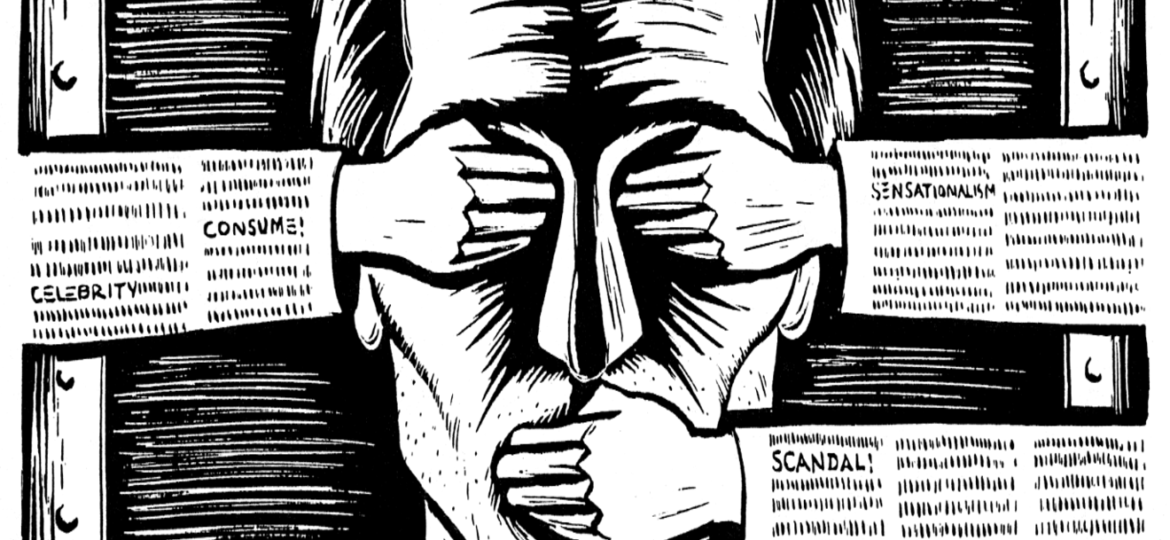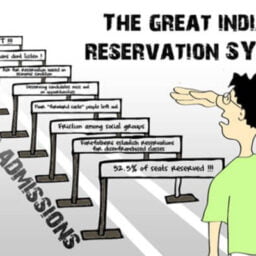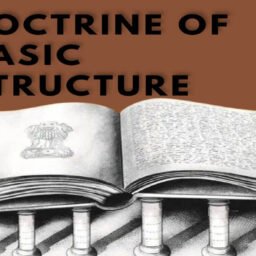
SEDITION LAW AND ITS USAGE FALL IN THE NEXUS OF ARTICLE 19(1) (A) AND SECTION 124-A
INTRODUCTION
“Section 124 A, under which I am happily charged, is perhaps the prince among the political sections of the Indian Penal Code designed to suppress the liberty of the citizen.”
Mohandas Karamchand Gandhi, March 18, 1922.
Every democratic nation gives individuals freedom of speech and expression as their basic and constitutional right.Yet this right has been jeopardized from the beginning with the inclusion of section 124A of I.P.C in post Constitutional era by the method of Article 371 of the Constitution of India.[i] Sec. 124A outlast his utility as the factors for enactment is no more. Over recent years tremendous use of this section by the ruling party and keep this up based on public disorder, State protection briefly against individuals who oppose their political interests and ideology. Data from the newly published ‘Crime in India statistics for 2019’by the National Crime Records Bureau supportsthat93 cases of sedition were registered in 2019, a 165% leap from 35 in 2016 was observed.Progress in sedition cases has shown that the police are invoking these crimes indiscriminately. In 2019, the police closed the case because of insufficient evidence or because the perpetrator was untraceable in 9% of the sedition cases.The recent arrest of activists (Assamese litterateur Hiren Gohain, awardee of Sahitya Akademi, Akhil Gogoi RTI activist, and a senior journalist)under sec 124A for their comments on CAA blazed controversy.
In Javed Habib v. State of Delhi[ii], it was held that criticizing the actions of the Government or expressing advice contrary to the views of the Prime Minister or his act could not be regarded as sedition under IPC Section 124A, because the criticism of the Government is an identity of democracy, that promotes the substitution of one government by another, giving a right to criticize too.
Although in the current Situation it is not getting worth to be struck down from the statute book yet blurred use of this section needs to be circumvented. This article will thrive to create a balance between Article 19 (1)(a) and reasonable application of Section 124A.
Striking Balance between Speeches that Increase Disloyalty and that Create Appropriate Disapproval -Judicial Activism
In light of the freedom of speech and expression guaranteed by the Indian Constitution after independence, in Tara Singh Gopi Chand v The State[iii] Section 124A of the IPC declared to be unconstitutional by the court, and in Ram Nandan v. State[iv] However, it was in the rules.
Kedarnath Singh v. State of Bihar[v]by the Constitutional bench claiming the stability of the state will be at risk if the government instituted by law is distorted. Thus, it was held that the section in question penalizes any spoken or written word, etc., with the latent idea of subjugating the government by using violent methods. At the same time, the section made it clear that using strong words to express disapproval of the step taken by the Government with advice to modifying or altering schemes through legal means would not be inherent through this section.By parochial reading of IPC sec. 124A, the Supreme Court, which brought this section back into law and held that freedom of speech and expression is not complete is subject to appropriate sanctions as an essential tool for monitoring the danger to public disorder, the integrity of the nation, sovereignty of the state and so on.
In Arun Jaitley v Union of India[vi], Supreme Court held that the criticism of the Supreme Court in NJCA is appropriate and rational, and hence does not congeries to sedition. Apex Court, therefore, attempts to ditch the gap between sedition as a crime that threatens state safety by promoting public chaos and rational expression of disapproval.
IMPRUDENT USE OF SEDITION LAW
The precedent set in Kedar Nath Singh v UOI has not been pursued by the executive or the judiciary in recent times, which takes us back to the colonial era.The recent arrest of activists (Assamese litterateur: Hiren Gohain awardee of Sahitya Akademi, Akhil Gogoi RTI activists and a senior journalist) under sec 124A for their comments of CAA blazed controversy. Hardik Patel raising voice for Patel community.
Former MP of Congress party and also actor Divya Spandana booked under section 124A for her Comments that “Pakistan is not hell; people there are like us”
Arun Jaitley, Binayak Sen- doctor and activists of human right, S.A.R. Geelani, for speaking on the seminar titled ‘Azadi’, Arundhati Roy, Varavara Rao and, an article on encounter deaths in Karnataka written by Dr. E. Rati Rao, V Gopala Swamy (Vaiko), president of student union JNUKanhaiya Kumar, Rinshad (student activist), Assen Trivedi {cartoonists), Gandhi memorial college Sri Nagar lecturer, Noor Mohammad Bhat, booked under sedition to set a question paper of English literature student onis‘ stone-pelters were the real heroes’ and several more shows that uncontrolled exercise of political authorities for suppressing the opponent political party or dissent. The above incident led to a clear picture of persistent discord in interpreting the nature of sedition between the executive and the lower judiciary vs. the higher judiciary, the final conviction of individuals in Sedition is limited. In the Common Cause and Anr. v. UOI[vii] ordered the authorities to strictly follow the precedent set in Kedar Nath Singh v. State of Bihar[viii]and to prohibit imprudently, the licentious exercise of the section for political purposes.
CONCLUSION
“The rights of every man are diminished when the rights of one man are threatened.”
John Fitzgerald Kennedy
It took nearly 200 years to fight for our rights and establish a democratic country.When a 19-year-old student named Amulya Leona Noronha got arrested by the Bengaluru Police for saying ‘Pakistan Zindabad’along with the ‘Hindustan Zindabad’, it clearly showed that in the current political order, opposition, government criticism, and challenging politicians, all of which are important to a democracy, have come to be viewed as sedition by the police and a part of the magistracy. There is an apprehension that the government of the day would exploit this section to suppress political opposition, constructive government criticism, and its policies, thus stifling democratic governance. Sedition laws have already been repealed by countries such as the U.K. and Australia, which deem them draconian.Individuals who claim freedom of speech and expression as their rights also have a concurrent duty under (Article 51-A) as responsible nationals of a country as stated in Kanhaiya Kumar v State (NCT of Delhi)“to participate in any kind of action or expression or speech that threatens public chaos or safety of the state.” On the other hand, policymakers should avoid limiting the legal speech of individuals that goes against the ideology of their government.Accordingly, this provision only needs to be enforced as prescribed through the High Court in-Kedar Nath Singh v. the State of Bihar, i.e., “balance between Articles 19(1)(a)of Constitution of India and IPC Section 124-A. The genesis of sedition legislation can be traced back to 1870. Today, in the 21st century, such legislation is inconsistent with society’s structure. Sedition law must either be explicitly redefined with a limitation to be enforced when the issues of freedom of speech and expression occur or struck down to ensure a country’s democratic process.”
Author(s) Name:
Gaurav Kumar Yadav (Integral University, Lucknow)
Kriti Jain (Integral University, Lucknow)
[i] Pen. Code § 124A
[ii] Javed Habib v. State of Delhi (2007) 96 DRJ 693
[iii] Tara Singh Gopi Chand v. State, 1951 Cri LJ 449
[iv] Ram Nandan v. State, AIR 1959 All 101
[v] Kedar Nath Singh v. State of Bihar, AIR 1962 SCC 955, 1962 SCR Supl. (2) 769
[vi]Arun Jaitley v Union of India, 2016 (1) ADJ 76
[vii] Common Cause & Anr. v. UOI, (2016) 15 SCC 269
[viii] Kedar Nath Singh v State of Bihar, AIR 1962 SCC 955















